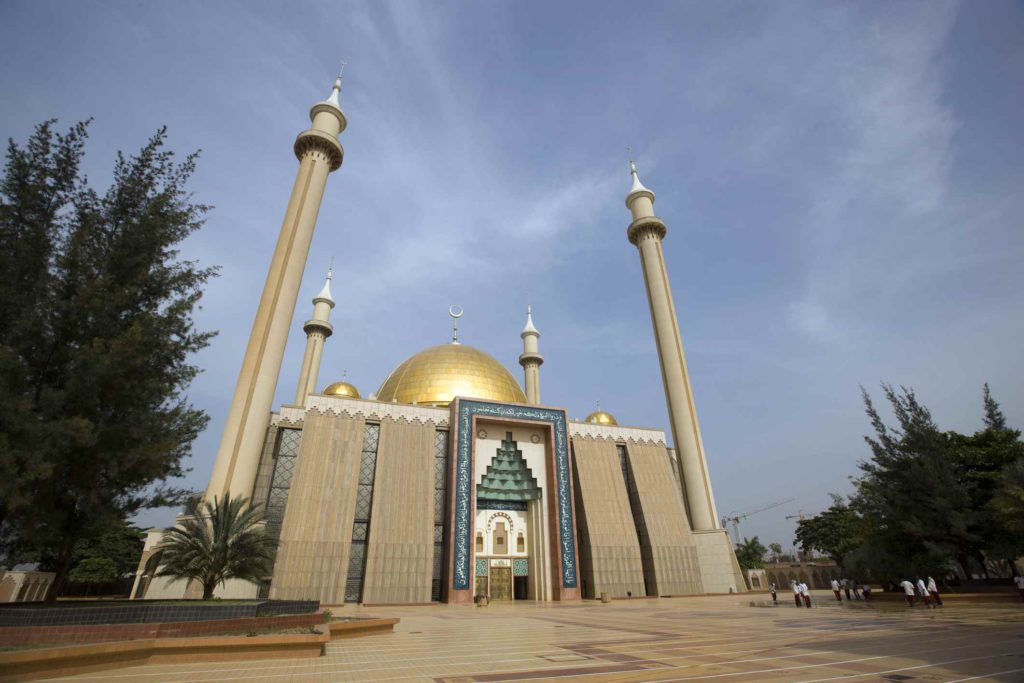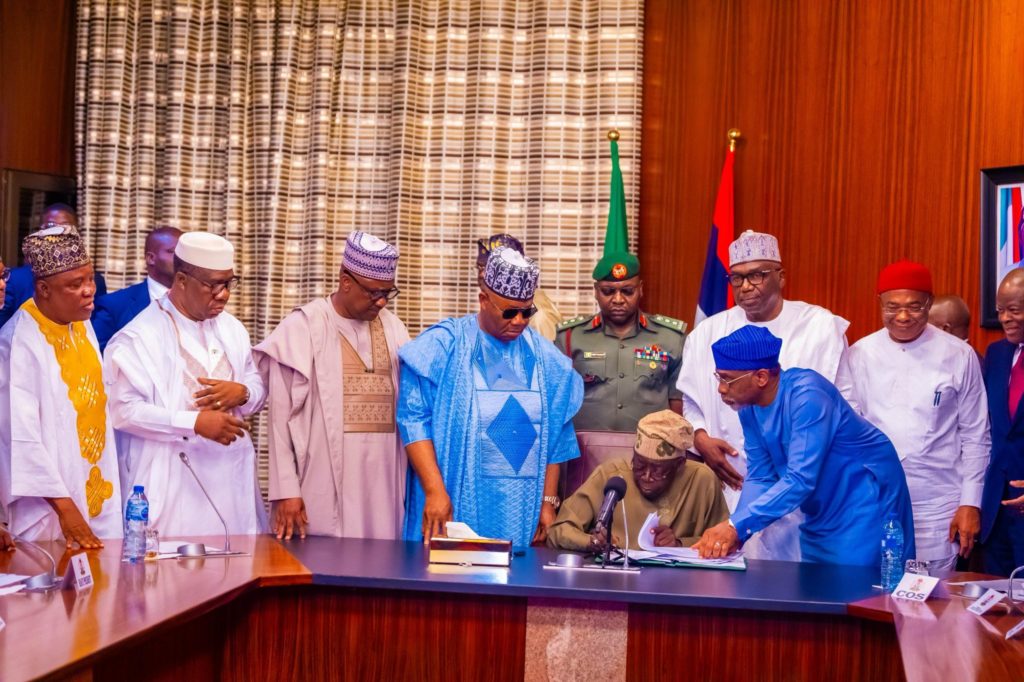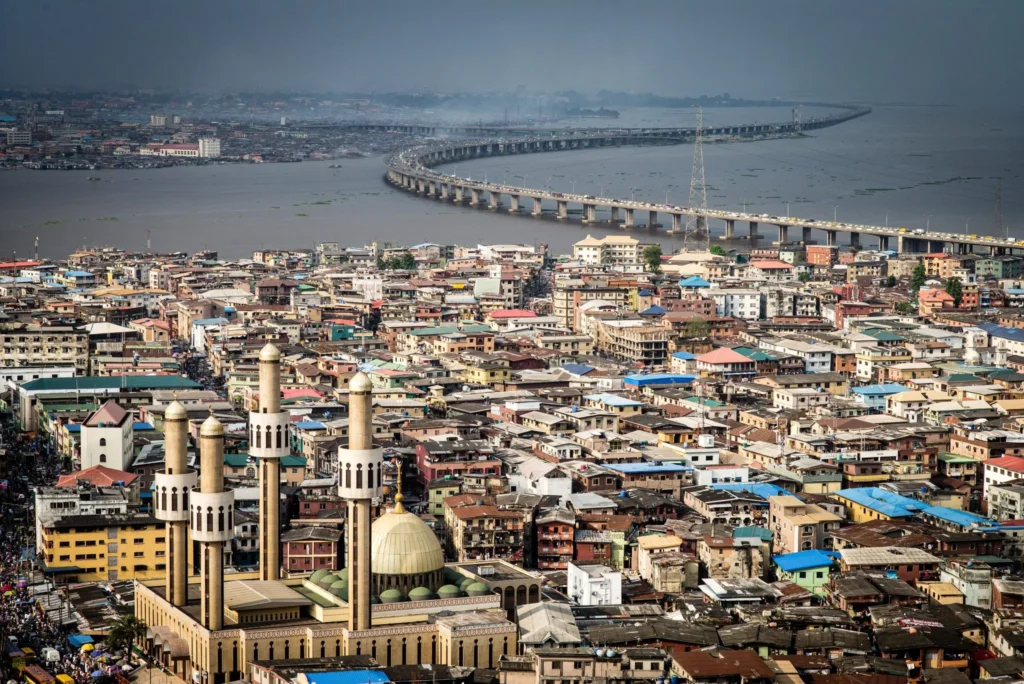- Nigeria ranked 12th poorest country by GDP per capita in 2025
- Nigeria Police rescue 46 human trafficking victims, arrest 7 suspects
- Tinubu signs four tax reform bills into law
- Senate gives NNPC 10-day ultimatum over ₦210tn audit discrepancies
- Obasanjo calls for review of western democracy in Africa
Across Nigeria’s 36 states and the Federal Capital Territory, these are the top five Nigerian news stories you shouldn’t miss.
Nigeria ranked 12th poorest country by GDP per capita in 2025

Nigeria has been ranked the 12th poorest country in the world by GDP per capita, according to new data from the International Monetary Fund (IMF) published by Visual Capitalist.
The 2025 report places Nigeria’s GDP per capita at $807, positioning it among the bottom 15 of the 50 countries surveyed. This highlights the deep economic challenges facing many Nigerians, despite the country’s large overall economy.
South Sudan tops the list with a GDP per capita of $251, followed by Yemen, Burundi, the Central African Republic, and Malawi. Nigeria’s position reflects the stark inequality and widespread poverty that persist, even as the country remains one of Africa’s largest economies by total GDP.
Nigeria Police rescue 46 human trafficking victims, arrest 7 suspects

The Nigeria Police Force (NPF) has announced the rescue of 46 victims of human trafficking and the arrest of seven suspects involved in cross-border crimes.
According to a statement released on Thursday by the Force Public Relations Officer, Olumuyiwa Adejobi, the operation was carried out by the INTERPOL National Central Bureau (NCB) in Abuja, in collaboration with INTERPOL NCB Accra.
Adejobi said 31 of the victims were rescued during the first phase of the operation after being lured from Ghana to Nigeria with false promises of jobs in Europe. Investigations revealed they were coerced into participating in fraudulent online marketing schemes run by the QNET network.
The police say efforts are ongoing to dismantle the trafficking network and return the victims to safety.
Tinubu signs four tax reform bills into law

President Bola Tinubu has signed into law four major tax reform bills recently passed by the National Assembly, marking a significant step in Nigeria’s effort to overhaul its tax system.
The newly assented bills are:
- The Nigeria Tax Bill
- The Nigeria Tax Administration Bill
- The Nigeria Revenue Service (Establishment) Bill
- The Joint Revenue Board (Establishment) Bill
According to the presidency, the new laws will come into effect on January 1, 2026, following broad consultations with stakeholders across the country. The reforms are expected to modernize tax administration, boost government revenue, enhance the ease of doing business, and attract both domestic and foreign investment.
The administration says these changes are key to creating a more transparent, efficient, and growth-friendly tax environment.
Senate gives NNPC 10-day ultimatum over ₦210tn audit discrepancies

The Senate Committee on Public Accounts has issued a 10-day ultimatum to the Nigerian National Petroleum Company (NNPC) Limited to respond to audit queries over discrepancies amounting to ₦210 trillion in its financial statements.
The committee’s chairman, Senator Aliyu Wadada, handed the deadline to NNPC’s Group Chief Executive Officer, Bayo Ojulari, after the company failed to appear at a scheduled hearing on Thursday.
The NNPC had earlier requested a two-month extension to respond to the queries, but the committee rejected the plea, insisting on a July 10 deadline for the company to provide a comprehensive explanation.
The investigation into the NNPC’s audited accounts, launched on June 19, is part of a broader probe into the financial operations of federal agencies.
Obasanjo calls for review of western democracy in Africa

Former Nigerian President Olusegun Obasanjo has called for a critical review of Africa’s governance systems, urging the continent to explore models better suited to its unique realities.
Speaking on the need for an African Renaissance, Obasanjo argued that the Western liberal democratic system inherited from colonial powers is failing to address Africa’s challenges. He stressed that African leaders must work collectively and put the continent’s interests first to achieve meaningful development.
He suggested that traditional pre-colonial governance systems, which promoted communalism and consensus-based decision-making, could offer valuable alternatives. According to Obasanjo, revisiting these indigenous models could enhance accountability, reduce corruption, and foster more inclusive leadership across the continent.


Leave a replyComments